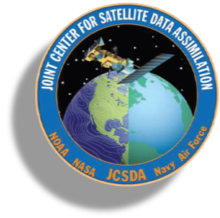The JCSDA is pleased to present the first public, open-source release of the Joint Effort for Data assimilation Integration (JEDI) system, JEDI-FV3 1.0.0. The JCSDA is also excited to announce release 2.4.0 of the Community Radiative Transfer Model (CRTM).
The JEDI-FV3 1.0.0 release contains everything needed to emulate at low cost the JCSDA near-real-time applications websites with JEDI-GFS and JEDI-GEOS. This includes interfaces for processing a wide variety of observational data and a library of observation operators for conventional, satellite radiance and GNSS-RO measurements that can be run from both FV3-based UFS/GFS and GEOS models.
To access the JEDI-FV3 code, detailed release notes, self-paced tutorials and more, please visit the JEDI-FV3 Release page.
The CRTM 2.4.0 release offers a number of substantial improvements over the preceding release 2.3.0, but nevertheless ensures backwards-compatibility for long-term and operational users.
New features include:
Shared-memory OpenMP parallelization
NetCDF4 interfaces for Cloud- and Aerosol coefficients
The pyCRTM interface
Github integration, ecbuild build system, and unit test environment
For more information on the 2.4.0 release of CRTM, including code access, detailed release notes, and tutorials, please visit the CRTM Release page.

